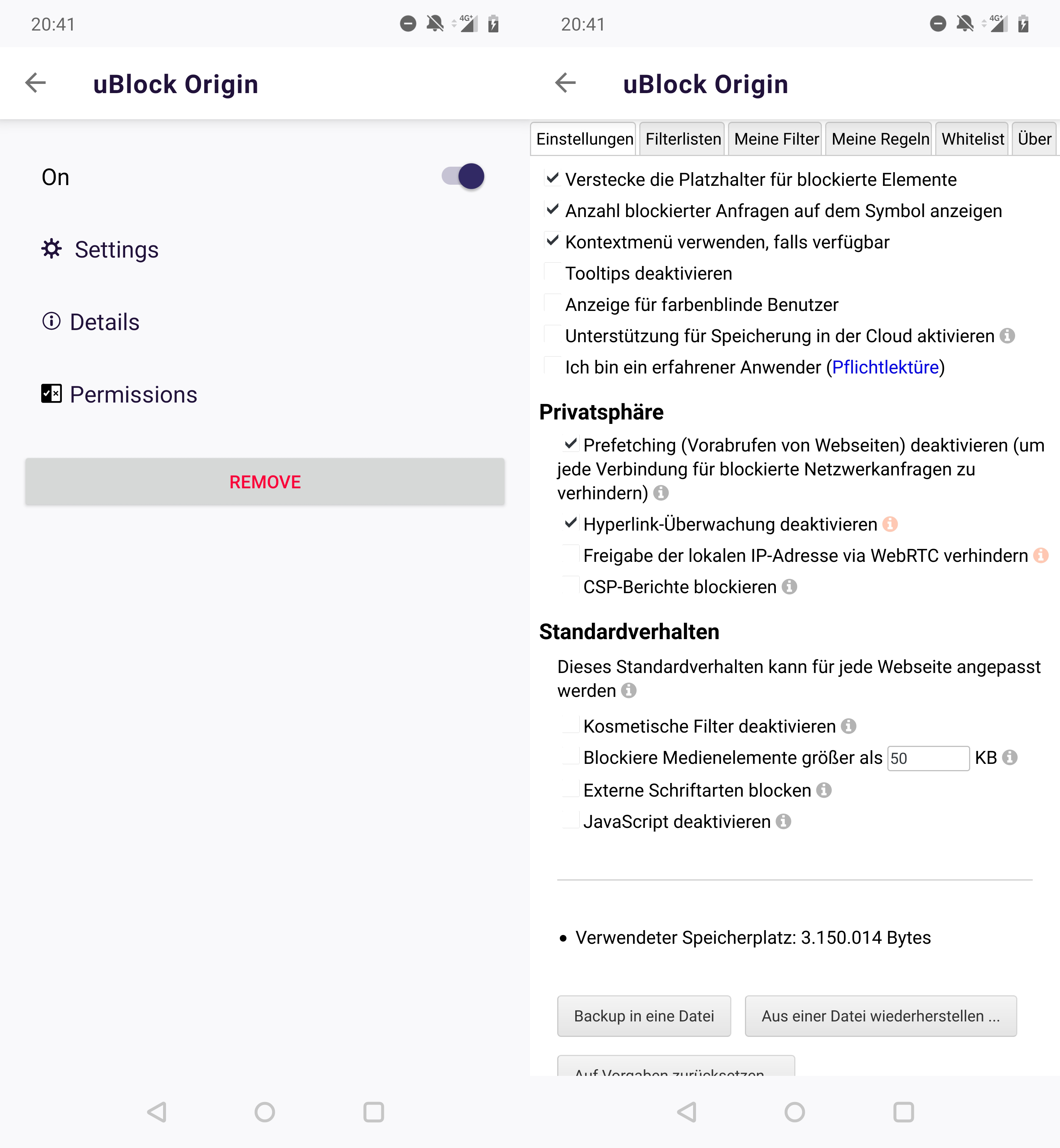

- #UBLOCK ORIGIN FIREFOX INSTALL#
- #UBLOCK ORIGIN FIREFOX ANDROID#
- #UBLOCK ORIGIN FIREFOX CODE#
- #UBLOCK ORIGIN FIREFOX PC#
Create a Firefox Sync account, and your browsing history, bookmarks, tabs, saved passwords, and more will follow you to whichever devices you log into. It’s as platform agnostic as Chrome, so you can bounce between Windows, Linux, Mac, Android, and iOS with no issues. Firefox also allows you to browse the web with ease across devices, too. But that feature doesn’t need to be a reason to stay with Chrome. Part of Chrome’s appeal is the seamless nature of Google’s ecosystem-accessing your bookmarks and syncing open tabs across devices is simple. You don’t have to give up seamless syncing across devices if you switch to Firefox.

Installing even just an ad-blocker makes for a smoother experience-no more accidental tapping on pop-ups, ads, or sponsored links you definitely didn’t want to visit. You’ll find recognizable options like uBlock Origin (ad-blocking), NoScript (control over JavaScript), HTTPS Everywhere (forces secure website connections where available), and more. While you’re limited to 17 add-ons to choose from, they cover the major bases for improving web surfing and security.
#UBLOCK ORIGIN FIREFOX INSTALL#
Just like on desktop, you can install browser extensions in the mobile version of Firefox.
#UBLOCK ORIGIN FIREFOX ANDROID#
Tired of annoying ads while browsing online with your smartphone? Android users are in luck.

(Your tabs should be automatically restored.) You don’t need to reboot your whole system. Or, if you have the browser set to remember your browsing history, closing the app entirely and reopening it. But you can quickly fix that problem by using Firefox’s Task Manager to nuke and then bring back a tab gone amok. That said, Firefox can occasionally suffer from memory bloat as well, if you like to leave many tabs open for days. Even when you begin piling on tabs and windows, browsing sessions don’t slow down. It also generally goes light on system resources. Google has taken steps to curtail these problems, but Firefox hasn’t had the same issues with regular memory leaks. Lighter on system resourcesĪt the time of this screenshot, Firefox had 3x the number of tabs open as Chrome (39 vs 13), with a greater variety of website types.Ĭhrome has a reputation for hogging system resources-namely RAM, but sometimes it also hits your CPU harder than expected, too.
#UBLOCK ORIGIN FIREFOX PC#
If your system resources get tied up by a cryptominer accessing your device, your PC will feel sluggish, including when you’re browsing online. Indirectly, this protective feature helps with browsing speed too.
#UBLOCK ORIGIN FIREFOX CODE#
Keep them from running and your web surfing should feel much snappier.įirefox also stops cryptominers from accessing your device, aka cryptojacking-it’s when a website allows malicious code to use your computer to mine for cryptocurrency. Even if they’re running invisibly in the background, they’re still there. The more scripts that must load as part of a website, the more you’ll feel them. Speedier website browsingĪ fresh installation of Firefox automatically blocks trackers that can make browsing feel slow. And blocking autoplay video across the web by default is a easy, fast change in Firefox’s settings. Out of the box, audio is muted, and for YouTube, autoplay for both audio and video are blocked.

Firefox, on the other hand, keeps tabs in hand by default. In Chrome, if you want to block sites that go hard with autoplay, you need to find and install a third-party extension. Autoplay video can eat bandwidth unnecessarily when you’re on a connection with limited data. But not all automatically mute the audio, despite near-universal hatred for having sudden noise blaring in the background. Many websites have videos and other media that automatically play when you load the page. IGN’s embedded videos automatically play by default (albeit with no audio on).


 0 kommentar(er)
0 kommentar(er)
